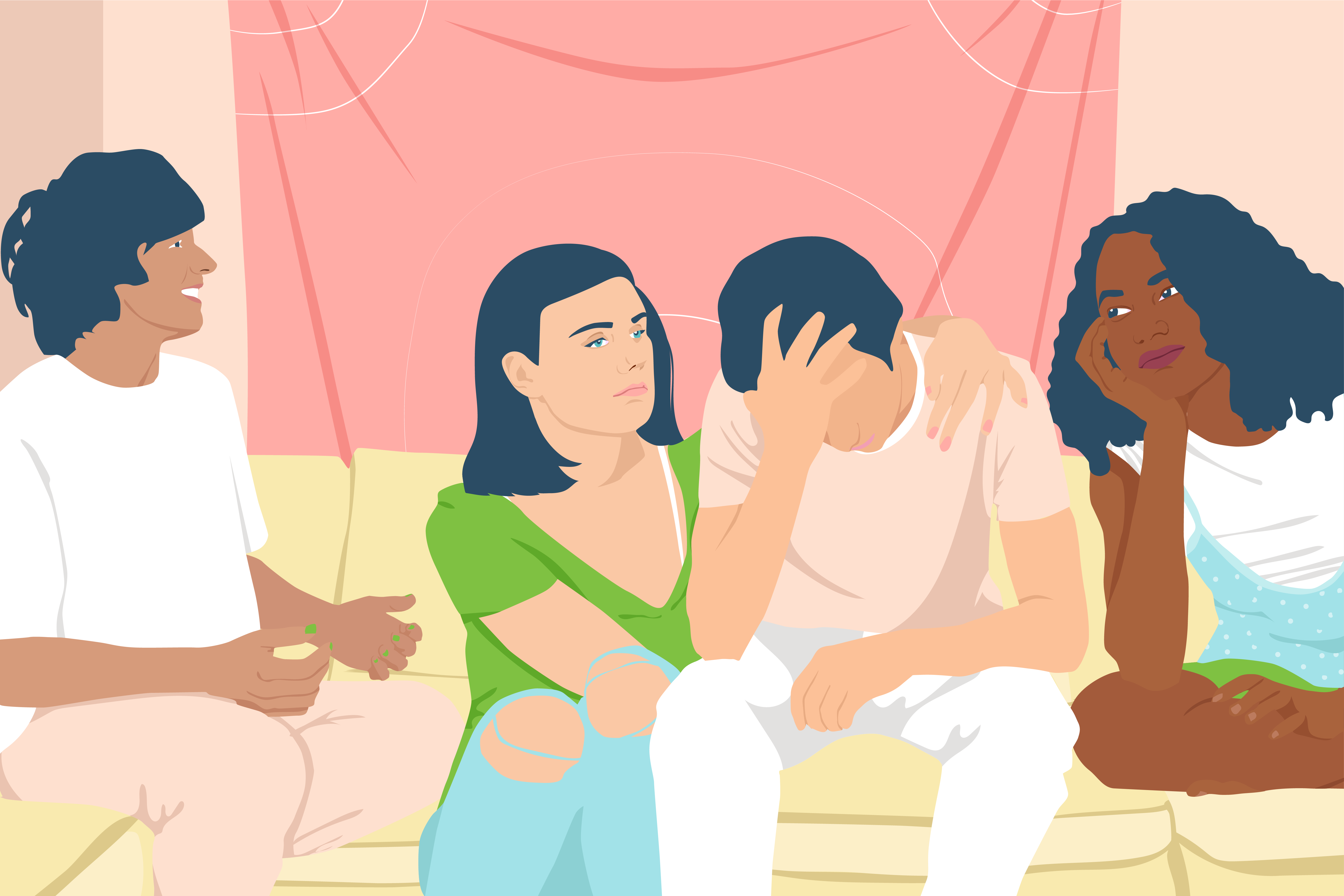
I've never been ordered to "be a woman" or told to "woman up." Even if I was, I would take it as a directive to just be myself. But I know things are very different for the boys in my life who are often told to "man up." I have two teenaged brothers, plus I attended boarding school and now college, where I often witness boys trying to navigate what it means to "be a man."
From watching the teenage boys I know and live in close proximity to grow into young adults, I've observed a thing or two about what masculinity really looks like. And it's not what we see in movies or think when we hear that dreaded phrase, "man up." It's an incredibly complicated time for teen boys to explore what it means to be a man, but as a teenage girl who is navigating growing up alongside them, I can say that there is not one clear definition of masculinity. Here's how the young men around me have changed my opinion of masculinity.
Biology Does Not Define Masculinity
There is a difference between sex and gender. Your sex defines the organs you were born with, while your gender is based on how you identify yourself. Today, it is more common for masculinity to be associated with gender and be expressive in nature, rather than something biologically inherent. In this vein, both women and men can exhibit masculinity.
The fashion world toys with this idea constantly. Through clothing, everyone can explore masculine or feminine—or a mix of the two—presentations. In my experience, this trickles down into the culture of my generation. Exploring masculinity in terms of one's outward presentation of gender is becoming more common on each individual's terms. That can mean boys painting their nails, girls shaving their heads, or any other infinite means of expression.
However, it is important to remember that an outward showing of society's expectation of masculinity is not always indicative of how a person is feeling. Masculinity is a concept a millennium in the making and is a complex thing to navigate a relationship with.
Big Boys Do Cry
While showing happiness is fairly easy for teen boys, I've noticed that the young men in my life are still learning how to navigate everything from heartbreak to death to deep-seated insecurities. They don't always know how to handle it when these feelings come up and are often more inclined to be emotionally vulnerable around me, a girl, than with another teenage boy.
This idea that boys and men have difficulty processing their emotions is nothing new, but I truly believe that I am watching evolution unfold in my generation in that regard. It is still a work in progress. They toe a line of how they are truly feeling and reconciling that with how they want to present themselves to the world.
Often, boys have direct memories of how their parents, specifically their fathers, present their emotions. If bottling up feelings of sadness, shame, or other "emasculating" emotions are the example, boys are inclined to follow. As parents, you should encourage your sons to treat emotions as a thing to be explored, not avoided. Whatever they feel is valid, so please, validate your sons.
\’Real Men\’ Can Also Be \’Good Men\’
Today, masculinity has become a buzz word: "Toxic masculinity," "masculinity in crisis," and similar phrases stir the pot every day. The modern world is reconciling with a long and painful past influenced by traditional masculinity. But I think it is important to remember, both as parents and as people, that the construct of masculinity comes down to individuals.
Traditional masculinity does not have to be inherently bad. If masculine to you means being an independent person, or assertive in what you want, or wanting to support your family, then by all means, be masculine as those are all admirable traits. Based on these traits, masculinity is not solely reserved for cisgender straight men. We see that people of diverse genders and sexual orientations can also be masculine—but the idea of masculinity is often stripped away from them because of stereotypical thinking.
My job as a friend to teenaged boys is to encourage them to explore their own sense of what it means to "be a man." That's all I can ask parents to do as well.
Elle Grant is a 19-year-old writer at Johns Hopkins University where she studies history, creative writing, and French. She hopes to pursue a career in publishing or media after graduation.
Read more 'Teen Talk' columns:

